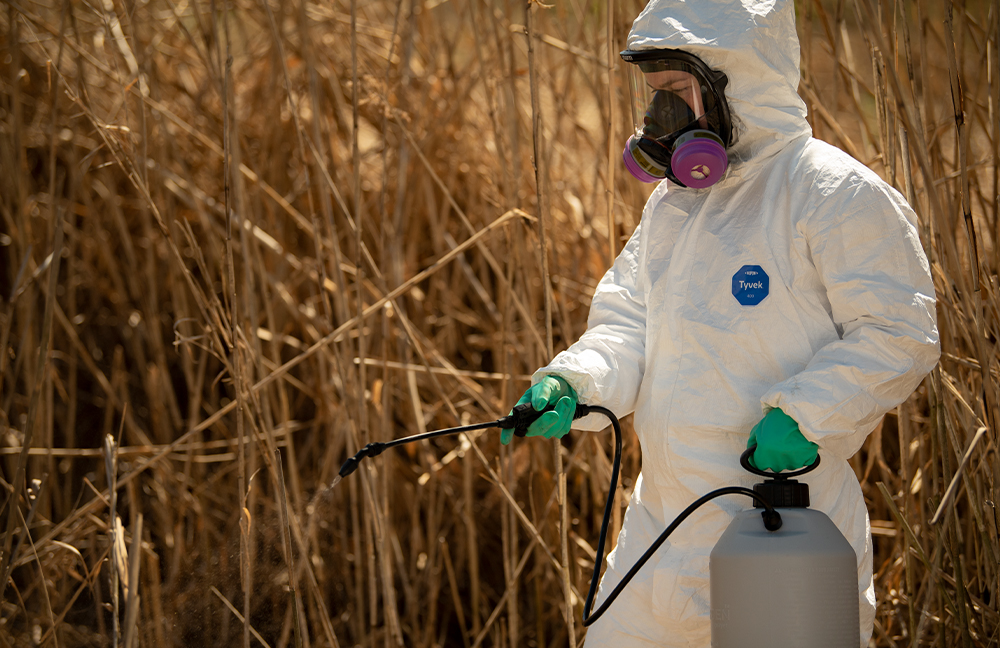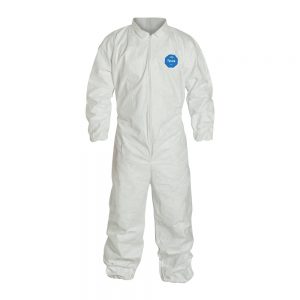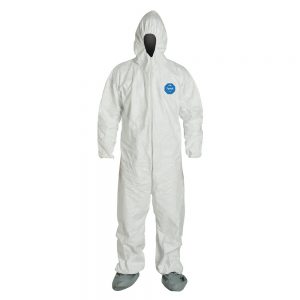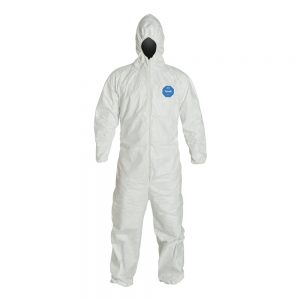The CDC reports that over 2 million full-time workers were employed in the Agricultural industry last year. Among that population, work-related skin diseases were one of the most common conditions affecting them.
Let’s take a closer look at why the need for skin coverage is critical, and what types of protection work best to safeguard America’s farmworkers.
Evaluating Skin Irritant Exposure on Farms
As part of the job, farmworkers are regularly exposed to various organic and synthetic chemicals along with other hazardous environmental conditions associated with farming. It’s a combination that can lead to an increased risk of skin damage or disease.
Ongoing factors that contribute to skin problems include:
- Long-term exposure to outdoor conditions
- Repeated contact with chemicals from plants, pesticides, herbicides, and fertilizers
- Risk of allergic reactions from arthropod stings and bites
Contact dermatitis is the most prevalent skin irritation in the US including on working farms. It occurs when a compound comes into direct contact with the skin, often more than once.
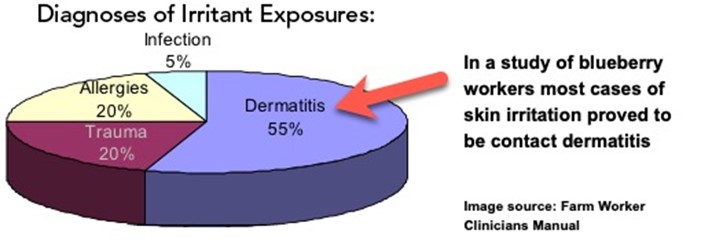
A study done by the Farmworker Clinical Care Resource for Occupational Health, evaluating skin irritations among workers of blueberry farms, found that contact dermatitis was the second most frequent work-related injury.
The study concluded that skin irritation primarily affects open skin areas. It also showed that skin issues occur 50% of the time due to contact with natural vegetation, and about 20% are due to reactions to farm chemicals.
Recognizing the Ongoing Risks in Agricultural Activities
The blueberry farm study is a small representation of the skin hazards present in common farm activities. It shows that even everyday tasks can cause skin damage, including:
- General Operations – Running a commercial farm means there’s no way to avoid long days outside. It’s a fact that brings with it the possibility of sunburn, dermatitis, superficial wounds, insect bites, and other similar health issues. And with ongoing exposure, skin disorders and injuries may even worsen as the season goes on.
- Animal Handling – Dealing with animals also can impact the skin. Skin injuries caused by farm animals include ticks, bites, and exposure to certain infectious diseases like ringworm, salmonella, and leptospirosis. Animals can also attract harmful insects that may cause skin irritation and other conditions.
- Crop Management – Exposure to pesticides and other agricultural chemicals is a common risk when planting, maintaining, and harvesting crops. Farmers also face skin irritation due to working for long periods around the moisture, dirt, and dust involved.
Measures to promote safe practices, reduce exposure to hazards, and improve the quantity and quality of agricultural PPE can contribute to safer work practices and better long-term health outcomes.
Meeting Compliance and Protection Responsibilities
Even though agricultural work will always involve an element of risk, there are ways employers can help minimize it. Providing PPE designed for varying levels of exposure is one way and often required.
OSHA (Occupational Safety and Hazard Administration) regulates safe work practices for all employers. For farmers or any other business that uses chemicals, OSHA requires that the label be the main guide on what to wear and how to use them safely.
Another government body, the Environmental Protection Agency (EPA), sets the laws surrounding how the label should be written and displayed to make it easier to understand. They require pesticide labels include Worker Protection Standard (WPS) statements, including listing the appropriate PPE to wear.
Employers should follow the recommendations on the label to ensure workers who are exposed to farm chemicals know the proper way to use and store them. Workers should also be made aware that PPE requirements may differ for different chemicals.
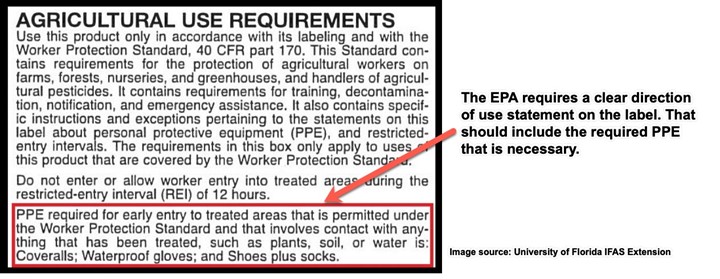
Acting on “WARNING” or “DANGER” Labels
The EPA is clear on action that should be taken when the signal word on the label states “WARNING” or “DANGER.” The worker must wear full-body coverage. In most cases, protective coveralls made of material that creates an additional barrier are appropriate. They can be worn over regular clothes while mixing, diluting, or applying pesticides.
Because coveralls have the option for tight fittings around wrists and ankles, they are also practical when farmworkers want to avoid pests like ticks and other insects. They are very effective apparel in preventing pests from crawling up and latching onto the skin.
Whether it comes to chemicals or pests, full coverage, limited-use coveralls help keep farmworkers safe, healthy, and productive.
Choosing the Best Full-Coverage Protection for Farmworkers
When choosing which coverall is best for your workers, it’s smart to consider what others in your industry are buying.
DuPont™ year after year comes out as the front runner. They have been serving the agricultural sector for years and are well-known for manufacturing limited-use coveralls perfect for farm work.
The DuPont™ Tyvek® 400 series is a popular choice that serves as full coverage protection made to be discarded after each use. The Tyvek® material is tough, lightweight and 100% synthetic fabric produced with high-density Spunbonded polyethylene fibers. It’s durable and breathable yet resistant to water, abrasion, bacterial penetration, and aging.
Style options include:
Each option provides a free range of movement and a tailored-like fit that gives reinforcement when bending and stretching. The longer zipper makes donning and doffing more manageable, while the elastic wrists and ankles help keep particles and pests out.
The proper doffing and disposal of contaminated coveralls are recommended, and DuPont™ even offers a recycling program for these garments.
Each coverall design is opaque to eliminate show-through. The entire range resists water penetration, is nonabsorbent and has excellent splash protection. They work well in most farm environments.
Sourcing Safe, Reliable Agricultural PPE
Fortunately, you don’t have to guess which coverall style is best for your farm. The National Institute for Occupational Safety and Health (NIOSH) provides farm employers with the latest ANSI requirements and sizing standards.
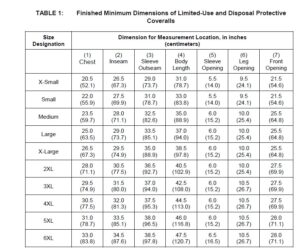
However, if you require further assistance, the Liberty Safety team can help you choose Agricultural PPE with the best function and fit for your crew.
We offer an inventory with a wide variety of DuPont™ products, including the Tyvek® 400 coveralls. You’ll also find many other farmworker-specific products to choose from.
Learn more about Dupont™ Tyvek® 400 coveralls in Agriculture industry today.
Liberty Safety is a proud industrial partner with DuPont™ providing advanced PPE products in the industry, keeping people safe and productive.

